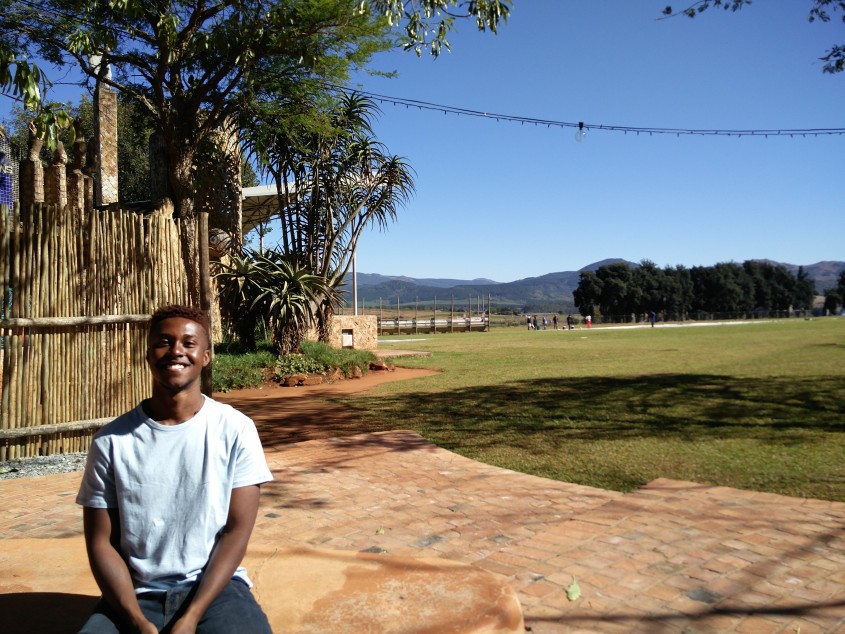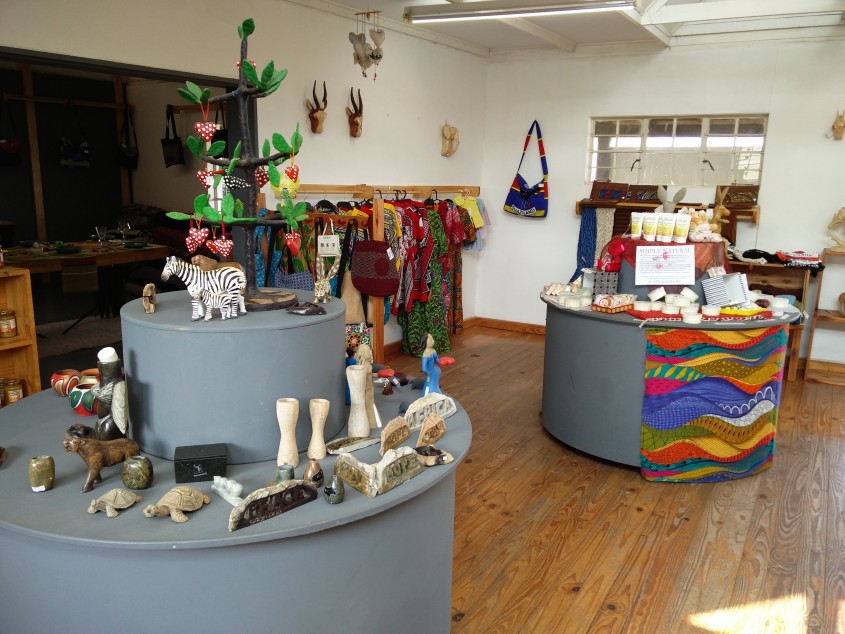As a child, Greg Allen was fascinated by fair-trade labels on chocolate and coffee packages. He vividly remembers seeing the same image on these products — a farmer working in a field, with a huge smile.
“You look at it and feel kind of happy, and you think that buying this product is going to do good for somebody else,” he says. “I didn’t really know much beyond that and didn’t really go any deeper.”
Allen, now in his fifth year of the International Development Studies (IDS) Co-op program, has just returned from a 10-month trip to Eswatini (formerly Swaziland), Africa, where he volunteered for two fair-trade organizations and researched the deeper meanings of these images.
He is now finishing a thesis paper uncovering the ways those images are produced, and how they influence ideas.

Meeting the people in The pictures
Allen spent his time dividing work days between Swaziland Fair Trade (SWIFT), the central fair-trade organization in Eswatini, and Trade+Impact, a trade association that supports women-led social enterprises across Africa and the Middle East.
Though he was first given a marketing role with SWIFT, Allen worked with the organization to change his job. He noticed many of the products were culturally significant, and representing them ethically and accurately was much more complicated than a smiling farmer.
This is what inspired his research, and part of why those images resonated with him as a child.
“I learned a lot about the culture, but in reality, there’s no way I would have been able to know as much as somebody who’s actually grown up there,” Allen says. “It didn’t feel right for me to to claim the right to represent somebody else's culture.”
Despite no background in art or graphic design, within a month he was creating everything from infographics for the website to major art pieces used when presenting to donors.
Allen says the best part of the job was spending time observing and interviewing the producers behind fair-trade labels, and the beadwork, jewelry, stone and wood carvings, natural cosmetics and food products they create.
“They really had a passion as artisans and for producing things that are absolutely unique and beautiful,” he says.

Navigating A unique position
Allen says the trip taught him about his positionality, that is, the way social and political factors make up someone’s identity, and how this identity influences the way people view each other.
Even after people learned he was Canadian, he says his identity as someone who is Black was still there. This meant he was treated as though he was someone from Eswatini.
He says he had to constantly consider his position, and carefully navigate the fact that he was still a development worker from the Global North.
“I really had to consider how I could manage my identity while being as respectful as possible, so as not to abuse my positionality which provided me with a set of privileges,” he says.
While abroad, Allen talked monthly over Skype with Laura Bisaillon, assistant professor in the Interdisciplinary Centre for Health and Society, who mentored him through his trip and research. Bisaillon has done extensive work, and has interest in, the ways knowledge is produced and received, which brought them together for this project.
“I detected in him this interest in the politics of knowledge production,” Bisaillon says. “He was developing sophisticated ways of thinking about how knowledge travels and where it travels. You know how they say, ‘Follow the money?’ Well, he was following the knowledge production.”
Their Skype conversations covered topics under an approach that Bisaillon calls the “three S’s: scholarly, social and supportive.” She guided Allen toward sources for his research, and discussed the interviews, readings and observations that would eventually lead to his research data. They also spoke about his personal experiences and wellbeing.
“We’re far from just work, so I would listen to the trips he took or the funny scenarios that he had,” she says. “It’s important that we’re ensuring that students sent abroad feel supported and are supported in practice.”
Allen also received support from the Canadian African Business Women's Alliance as well as a scholarship from the Scarborough-York Region Chinese Business Association and a Queen Elizabeth Diamond Jubilee Scholarship.
His thesis paper, which he plans to finish in April 2019, delves into the production of knowledge in marketing of fair-trade products. He focuses on the way they create certain images and ideas about the places the products are from. It also explores the internal dynamics of post-colonial, post-apartheid legacies that exist in Eswatini today, though the country never formally had an apartheid political system.
“I was trying to unpack how those legacies in race, gender and class play into how ideas are formed and represented within fair-trade marketing,” he says. “It is absolutely critical to also analyze how dynamics within the Global South influence how messages are developed.”
